Julianne had this question: “Here’s my problem: I’m just starting out writing with a solid background in improv comedy. I think improv has been massively helpful in helping me generate ideas and work out different parts of my brain that I wouldn’t normally. BUT another crucial aspect of improv is that it’s fleeting. You create this incredible thing out of nothing with a group of people; and you’re fully invested all throughout. But then someone edits the scene and it’s over. You’re constantly moving on to the next funny thing, never ruminating for too long on any one idea. I think this philosophy may have permeated my psyche in an unhealthy way.
Nowadays, I’ll sit down to outline and write something more long-form, then will wake up the next day already somewhat bored and questioning whether the idea was even worthwhile in the first place. I’ll often come to the conclusion that my idea is awful/unoriginal/boring/some combo of all of the above, and will abandon ship before I even really get started… is there any way you know of to combat this strong initial wave of negativity? How can you tell whether your negative assessment is valid or is more a reflection of deeper insecurities?”
I love this question. It’s not just a beginner’s struggle either. We don’t know if our idea deserves to live long enough to see the light of day. I have killed an idea an hour after I thought of it but after a while, not picking an idea and running with it becomes counter productive.
When I made a habit of rejecting every idea either upfront or, just like Julianne said, after an outline or the day after, I got so caught up in the notion that every idea had to be THE idea that I pretty much stopped writing. And that’s the opposite of writing.
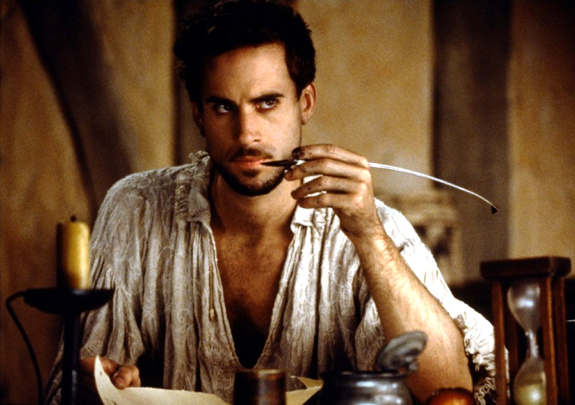
Jot ideas down on a notecard unless quill ink is scarce. Photo Courtesy: Universal
What’s a Good Idea?
For me, an idea is heavily considered if it sticks with me. Sometimes I won’t write the idea down. Just let it linger, waft around, if it’s still there the next day or week or so, I start giving it more attention.
Other times, I’ll write down an idea, no matter how strong or weak it is, and put it in a card file. After many computer crashes over the years, I’ve taken to putting ideas in several card files. Occasionally, I’ll pull out the boxes (yes, boxes) to see if there’s anything interesting in there.
Maybe it’s not the main story, but becomes a solid background story or a small scene. Maybe that idea sparks off something new. A character or two. I’ve found some pretty useful stuff in there. And I’m glad I hung onto it.
I learned from a mentor not to judge my ideas too harshly at first. He said something like, “Ideas are like babies, you can’t expect them to fend for themselves unless you give them some kind of nourishment.” BTW, the word “nourishment” makes my skin crawl, I don’t know why, but I got the point. It’s a defenseless thing. Write it down, put it in the box and come back later.

Is this show good? I have no idea. Photo Courtesy: ABC
The Rose Ceremony
I have no idea why I’m using a Bachelor/Bachelorette reference as I’ve never seen the show but it seemed like a fitting subtitle. At some point, you’ve got to pick an idea and write. It doesn’t really matter if it’s “good” or “bad” because that’s not the goal when you set out. Good and bad come later.
Right now, it’s about finishing something. Nailing down the story, even it seems offtrack or whatever the problem is, nail it down anyway. Put as much of the story down as you can, even if it doesn’t make sense in places. Stick with it. You can come back to the boring/wonky/awkward bits later. That’s for the rewrite hours.
Not committing and over-prepping and noodling way too long, although important, turns into a roadblock. The very act of writing is important, consistently, on regular days, etc. whatever grows that part of your brain that creates a space for your writing.
When you’re starting out, completing something is more important than trying to write the next Moonlight. You’ve got to build a routine, build those writing muscles, build stamina, and maintain it.
It took me a long time to figure that out. I wanted to write the next big indie. I was so tough on my own ideas that I would walk away from a half-written screenplay and take long breaks from writing altogether. Don’t be like me.
Haruki Murakami said of Raymond Chandler: “In private correspondence the great mystery writer once confessed that even if he didn’t write anything, he made sure he sat down at his desk every single day and concentrated. I understand the purpose behind his doing this. This is the way Chandler gave himself the physical stamina a professional writer needs, quietly strengthening his willpower. This sort of daily training was indispensable to him.”

Improv is a gateway drug. Photo Courtesy: Universal Pictures
Using Your Improv Background as a Strength
You have the ability to nail down an idea on the fly. Sometimes it lands, sometimes it doesn’t. That’s the thrill of improv, right? I don’t know as I’ve done tiny bits of improv but it certainly seems that way. Your mind has to race through all of the possibilities in the scene to quickly grab the funniest or most helpful building block or punch line.
You and your group probably regularly rehearse and have found a groove with each other. Maybe you’ve worked endlessly on the Harold, rhythm, expectations, each other’s tells, etc. That’s the same kind of work you put into writing. Creating scenarios, characters, giving them tics, giving them something to do. And after you do that? Keep going.
Suffice it to say, you’ve been at this for a while it seems and you’ve already got some handy skills at your disposal. You know how to commit. You know when something works. You know when it doesn’t. Only now, you have to do that by yourself.
Why not act out the idea? Play it through, see all of the possibilities. Record it. I am a firm believer in recording my thoughts on a story way before I write one word. A lot of my writer friends do the same. Or write it down and kick it around in your head. Noodling is hugely important. Thinking is writing, right?
My friend is a long time improviser and writer as well. When I put Julianne’s question to him, he immediately related. “Oh man, I used to have this problem! Still do! But not as much anymore. I do what you’re saying. I have to write regularly without caring about the quality up front. When I first started writing, nothing was ever good enough or funny enough. I’d spend weeks and weeks just trying to find an idea to start with. Then I got so sick of talking about writing and not writing, I just grabbed a half-baked idea and started my story. It was rough but I didn’t care. I just wanted to finish that puppy.”
I asked him if he liked what he wrote. “It took several drafts. It was scary, really hard and I kind of had a few panic attacks. Ultimately, I’m very happy with the final draft. I may show it to someone someday. Maybe not. That wasn’t the point. I was empowered by finishing, by the whole experience. It was way less scary when I started the second screenplay. I discovered that I enjoyed the process of writing. And that killed my fear of finding the right idea. For me, it’s about writing to where I unearth things about myself and my characters.”
Before we got off the phone he said, “Aren’t all ideas fleeting, though? I catch mine like lightning bugs.” Huh? He explained, “For me, ideas swirl around on stage during improv and they do the same when I sit down to write. I’m under pressure to go with something on stage. So I do the same when I’m writing alone. I’ll just grab something out of the air and try it out.”
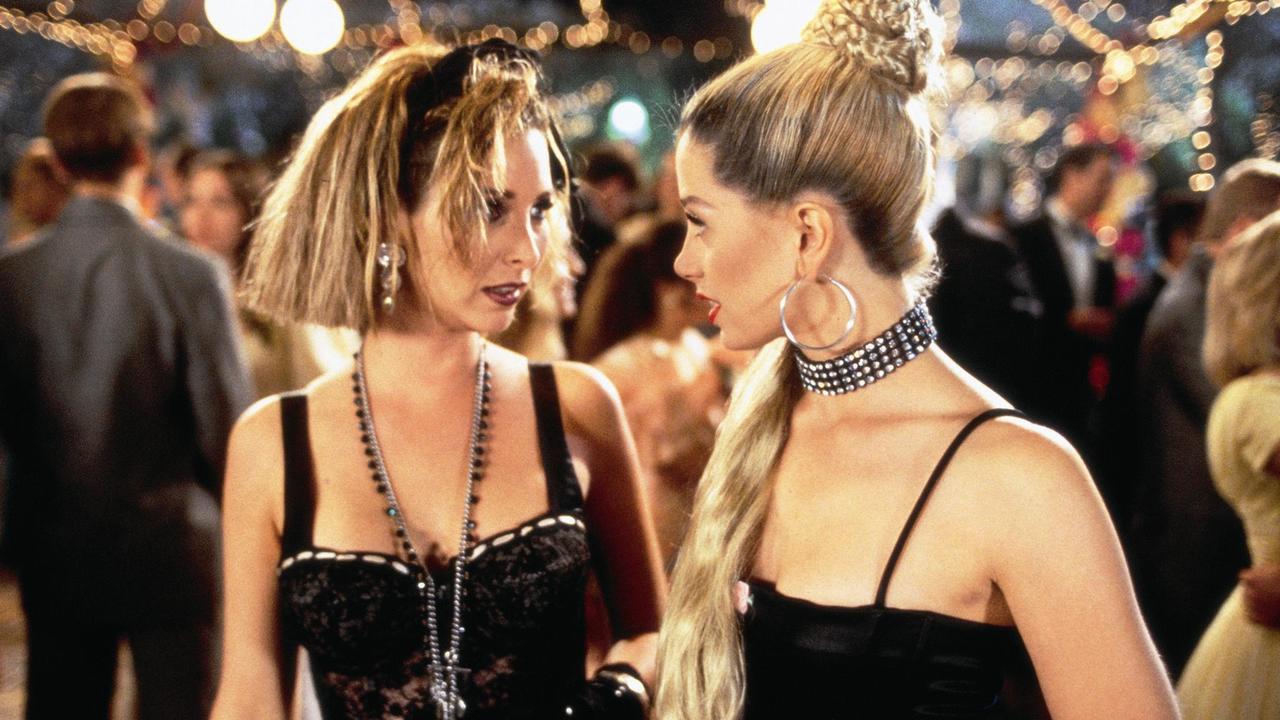
Coupla characters making random noises at each other is a start. Photo Courtesy: Buena Vista Pictures
The Two-Pager
What if you’re not an improviser? I don’t know if this will help but this has greatly helped me. I was freaking out to a writer friend Alex about ideas and how after a day of writing for my other clients, I was just wrung out. He shared this advice he got from a writing pro.
Alex said, “The guy said to get up before the day starts and write two pages of a scene every day. Two characters. Two pages. Don’t overthink it. Don’t come up with some elaborate set up the scene. In fact, give yourself exactly one minute before you start writing. Settle on a rough idea for a setting, establish day or night, and have two characters talk to each other for two pages. Do it every morning, like brushing your teeth. Don’t even read it when you’re done. Just save the file and go about your day.”
As nutty as it sounded, I was desperate to get my brain going again so I tried it. I wrote two pagers every day for a couple of months. Sometimes I cheated and wrote in the middle of the day on a break from my other writing. Other days, I’d write at the end of the day. What felt better for me was writing off the top of the day. I skipped a couple of days but for the most part, I got those two pages out.
The results? It gave me several characters and ideas that I turned into solid work. And… I still write two pagers just about every month. I really enjoy it. It’s like brain massage.
I also got to write about things I’d never even consider. Such as: Two Medieval headsman discuss the quality of bedding comparing vermin, infestation, and plague ratios. And: Two assassins have a conversation about rank and gender equality while the man, the least experienced, digs the grave while the woman, who’s been at this for years, gives him advice on how to save his back and the importance of buying the right shovel.
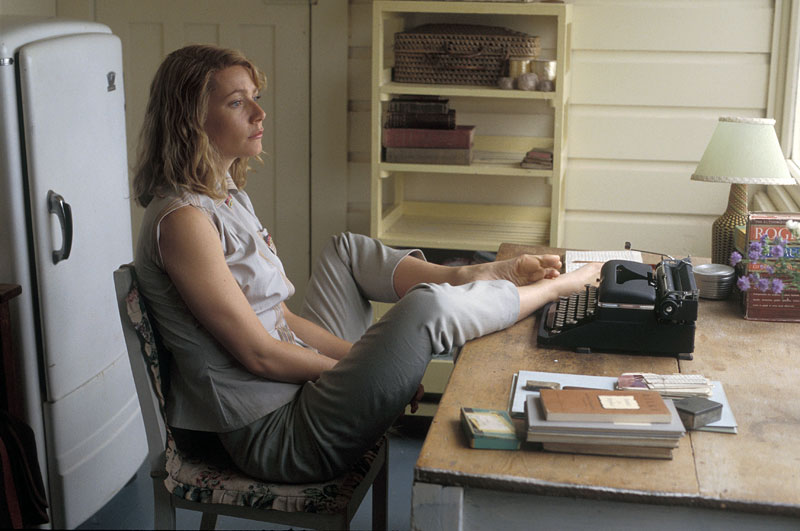
Writing is thinking. Just, uh, don’t get too dark with that, okay? Photo Courtesy: Focus Features
Insecurities? What Would We Do Without Them?
Julianne asked, “How can you tell whether your negative assessment is valid or is more a reflection of deeper insecurities?” I’m no psychologist but I think embracing our insecurities makes us stronger writers. It’s what gives our stories depth and a chance to connect with others. So even if you’re judging your own idea harshly that doesn’t mean you shouldn’t pursue it. It might even make the story better. I say try it.
And in exploring our insecurities and negative pushback on paper gives us an opportunity. To widen the track we’re on. To discover something about ourselves. As I’ve thrown more of my insecurities into characters, I’ve seen them come to life in a more natural way. When they speak to me now, they are more challenging and I can’t just write them in flat lines.
But full disclosure, I haven’t been to therapy in years. So… grain of salt.

Hate my advice? I’m not even mad. Photo Courtesy: DreamWorks
To Listen or Not to Listen
I’ll be the first to tell anyone, take or leave any advice. See what works for you. If it doesn’t work, don’t use it. And if some tip or exercise turns out to be a waste of time, ditch it. The truth is, we all write in our own ways. We have our little bag of tricks and routines that work for us. There is no one size fits all. The main thing is to write and keep writing and find your process. For me, it’s tough, it’s frustrating, and I enjoy the hell out of it.
Please share your tips, thoughts, and advice on this topic. Looking forward to hearing from you.
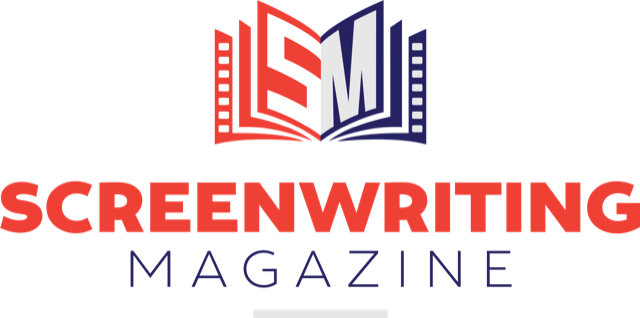
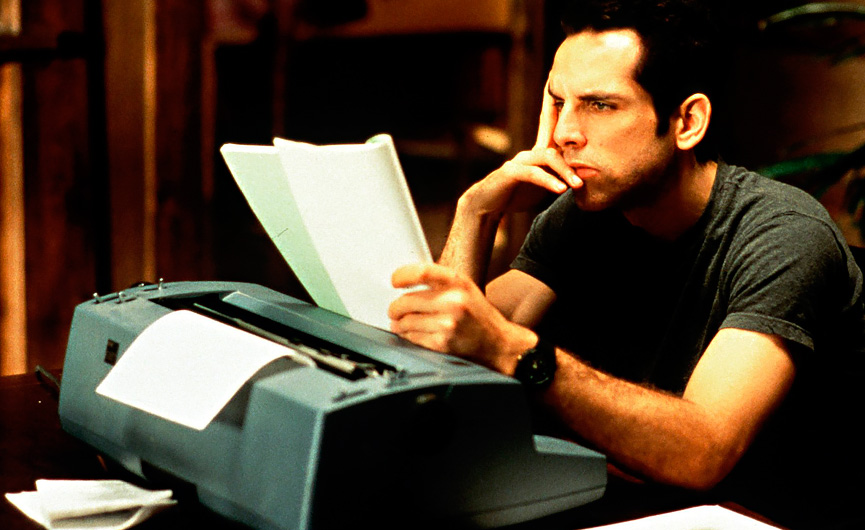


2 Replies to "When Is the Idea Worth Pursuing the Draft?"
Dario Guberman April 14, 2017 (4:30 pm)
Fantastic article Lisa! I´ve spent the last 18 years writhing for television, BUT what I write are TV commercials. After the advertising career, I studied screenwriting and “only for a short time” I stepped into and advertising agency… Since a couple of years and taking advantage of actors and directors I’ve known shooting commercials, I took the determination of writing what I need and not what I’m requested. So, as I write while having a job (and trying to be a good husband and dad) the crucial thing is recognizing where to invest the small time that I have. So I find that just sitting down and writing is a great piece of advice, but my problem is that I have long lists of ideas and no time to “nourish” them. So I give an idea a chance if I can’t help writing about it (if it keeps coming back as you said) but, mainly, if the idea is somehow feasible. For instance, we are about to shoot a short film with only one setting and three characters… the director loved the idea, it is cheap to produce, his production company was open to assume the cost, so I wrote it! Another example, a different director had an idea for a feature film, he needed a co-screenwriter… so now that one is the idea that has grabbed my time. I feel a bit like the feather in Forrest Gump… o maybe like Forest, depending on destiny. Its ironic that the training in pressure and speed of the hateful advertising, might be an ally after all!
Lisa Waugh April 14, 2017 (5:30 pm)
Wow, Dario. I think YOU should write an article for us. But I guess you’ve got your dance card punched for a while, huh. There’s something to be said about having to write on deadline. There’s nothing like that expectation to force you to get things out. My deadline writing has shaped my writing life too. Thank you for your input!